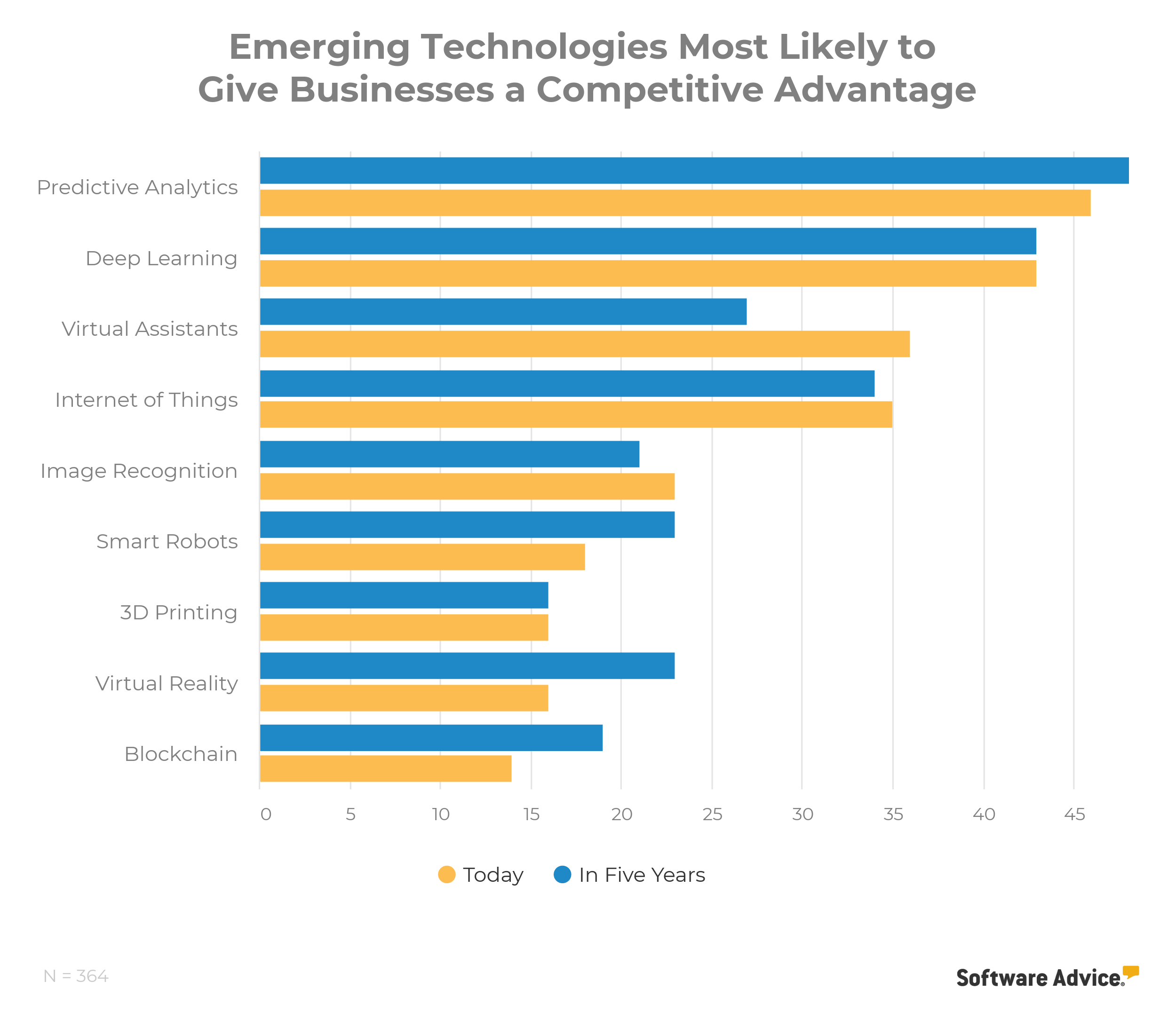The Benefits of Big Data in ERP Software
Big data’s kind of a big deal.
In 2020, each one of us will produce 1.7 megabytes of data per second, contributing to the more than 40 zettabytes (i.e., 40 trillion gigabytes) of the world’s existing repository of ones and zeroes. How can your business make heads or tails of all this data, much less use it to improve performance?
If any software type can handle such volume, it’s ERP software. Home to all your most valuable business information, from accounting to human resources, ERP leverages big data to gain unprecedented insight into the performance of your organization.
These insights include:
More accurate forecasting
Improved scheduling
Supply chain optimization
More comprehensive customer profiling
Let’s take a deeper dive into each.
More accurate forecasting
With a variety of dashboards and advanced reporting functionality, businesses rely on ERP software’s artificial intelligence (AI) and predictive analytics functionality to project future business performance. But this process, known as forecasting, has an impact that stretches beyond the software itself.
Gartner predicts that, by 2022, 65% of businesses will use AI-based ERP strategies to gain a competitive advantage. What’s more, the same study found predictive analytics to be the most likely emerging technology to help them get a leg up on their competition.

Source: Gartner
By minimizing the guesswork involved in predicting seasonal demand, supply, and financial performance, forecasting with ERP software gives businesses more accurate and in-depth insight into the current and future health of an organization.
Improved scheduling
Similarly, ERP software is capable of analyzing more data in less time, offering deeper, more precise insight into operational inefficiencies. This allows businesses to more effectively schedule processes and reallocate resources into areas that need them most.
They can see it all in real time, too. Take, for example, a manufacturing plant, which relies on production schedules to ensure timely delivery of goods. Because ERP software integrates data points from across the organization, users can review the status of a given job, make adjustments on the fly, and ensure optimal utilization of people and machinery. This marriage between big data and integrated processes is changing the way manufacturers operate.
Supply chain optimization
ERP and big data also work in concert to optimize manufacturing supply chains. Effective supply chain management requires thorough and constant analysis of manufacturing processes and their numerous interdependent moving parts. Through each stage of the supply chain, from raw materials procurement to distribution, ERP software offers more visibility into any procedural gaps or inefficiencies that so often derail production timelines.
In the distribution stage, businesses depend on fleet management and route optimization to efficiently deliver goods and services. A mobile-compatible ERP can track the precise GPS location of a vehicle while using real-time traffic data to adjust routes and ensure timely delivery.
More comprehensive customer profiling
In today’s tech-driven climate, businesses must utilize data-driven insights to satisfy their customers’ unique and ever-evolving needs. Customer relationship management (CRM) software is a perfectly capable solution, but a CRM alone won’t give businesses the intel they need.
ERP software’s CRM component offers deeper insight into client-related activity than a standalone CRM can, made possible through its analysis of historical trends and individual buying habits. What’s more, ERP’s use of big data and AI-driven technologies offers more accurate buyer profiles and more effective prospect targeting, helping businesses focus only on those most likely to convert.
Next steps: Putting ERP and big data to work
Most modern ERPs leverage big data nowadays, but that doesn’t mean any ERP will do. Every business is unique, with different structures, objectives, and budgets—and it’s important to find the right solution for your organization.
Here’s how you can do that:
Browse our ERP software page. More than just a list of products, our ERP listings are bolstered by reviews from actual users, with the added bonus of being able to sort and filter top-rated products by market, business size, or budget.
Evaluate the FrontRunners® for ERP. The official Software Advice FrontRunners® study highlights the top ERP products in the market. Each product is individually evaluated by user recommendation and general usability, and results are presented in an easy-to-understand graph to aid your software search.
Talk to one of our software advisors. Our expert advisors provide free, fast, and personalized software recommendations, helping companies of all sizes find products that meet their business needs. Schedule an appointment with an advisor here.